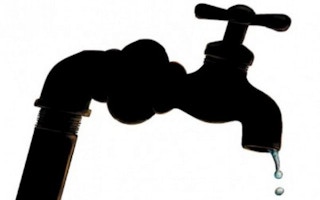A report released on Thursday by the United Nations Environment Programme (UNEP) found that targeted investments in global water management and infrastructure are critical to meeting international development targets, and to staving off pending crises due to water shortages.
The UNEP has set out a plan in the water chapter of its Green Economy Report, launched at last week’s World Water Week event in Stockholm, to reduce water scarcity and meet Millenium Development Goals (MDGs) for water provision by investing US$198 billion, or 0.16 per cent of global GDP, in the water sector annually.
“The Green Economy Report shows how accelerated investment in water-dependent ecosystems, water infrastructure and water management, coupled with effective policies, can boost water and food security, improve human health and promote economic growth,” said UNEP executive director Achim Steiner in a statement.
He added that improving access to cleaner drinking water and sanitation services was crucial to creating a more sustainable society.
The UNEP report recommendations included both investments that will increase supplies of fresh water, such as desalination, water recycling, dams and the protection of eco-systems that provide water storage and treatment, as well as investments in water efficiency that will ease demand. Such investments would include improvements in industrial and agricultural water management, and improved infrastructure and policies.
All of these investments will be required to cover a significant shortfall in water supply. The UNEP estimates that without significant improvements in water use, global water demand is expected to outstrip supply by as much as 40 per cent by 2030.
The report’s authors noted that increased supply can only provide 40 per cent of the necessary amount, leaving water efficiency measures to cover the remaining 60 per cent.
Clean water is one of the universal human rights collectively identified by the world’s governments at a UN summit in 2000, when the Millennium Development Goals were established. The MDGs dictate that the number of people with insufficient access to basic sanitation and safe water should be reduced by 50 per cent by 2015.
Inadequate water supplies lead to costly health and social problems. According the UNEP, the Asian countries of Cambodia, Indonesia, the Philippines and Vietnam lose an estimated US$9 billion a year, amounting to 2 per cent of their combined GDP, due to problems such as water-borne diseases caused by poor sanitation.
Asia’s poor populations pay in other ways for insufficient water infrastructure. The Asian Development Bank estimates that in Asian cities, where water connections are often lacking in poorer neighbourhoods, the underprivileged pay 20 to 40 times more for their water than wealthier citizens.
The UNEP report’s lead author, Professor Mike Young of the University of Adelaide, said that without increased investments and related policy reforms, water supply crises will become increasingly common.










